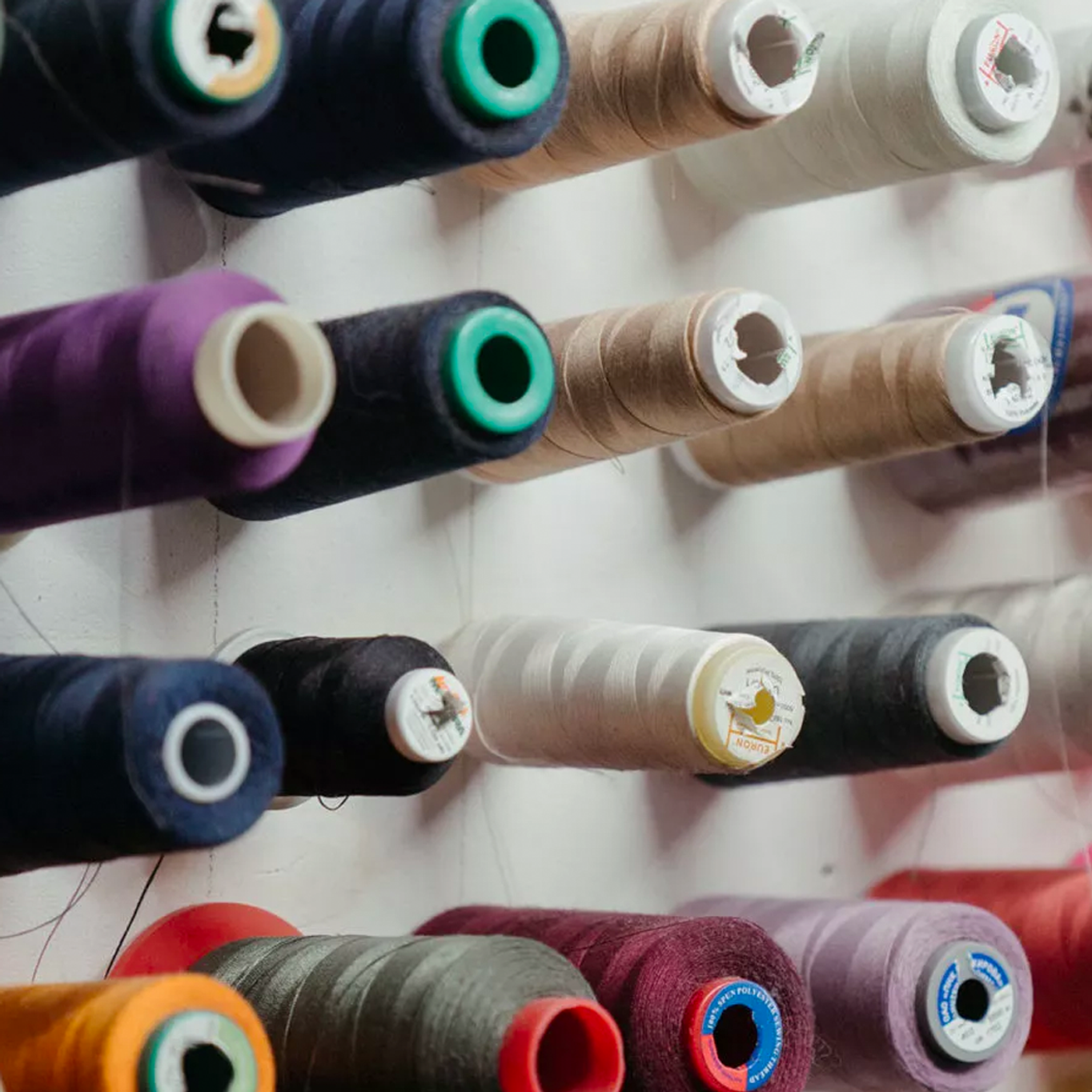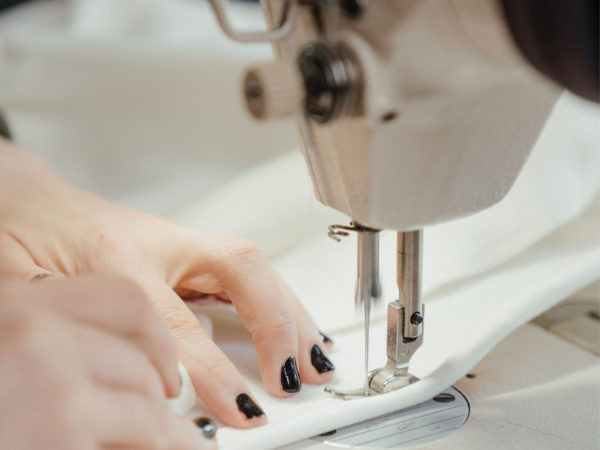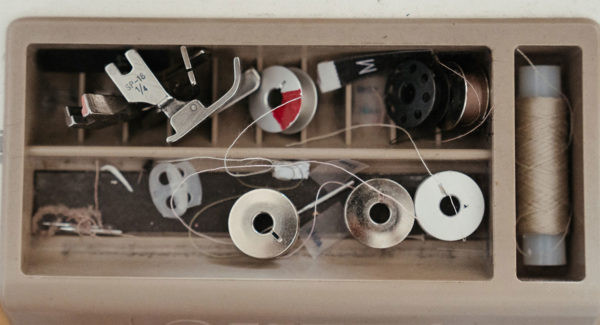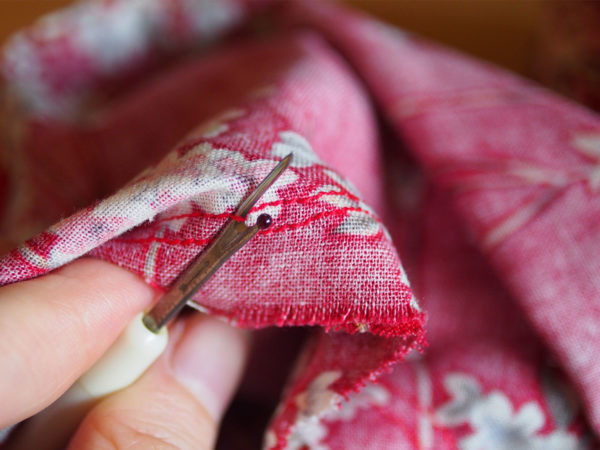
So, you’re excited to embark on your first sewing project. We’re excited too! While you may be tempted to just jump in and start sewing, it’s important to make sure you’ve properly set up your station. Since there is so much to learn and so many sewing accessories to discover, it can be difficult to determine which sewing essentials you actually need and which are only required for more advanced sewists.
To make sure your learn-to-sew experience is as easy and enjoyable as possible, you’ll need a sewing kit that's fully stocked with the sewing essentials. Not sure what you’ll need? Check out our list of 12 sewing essentials for beginners to get started.
12 Sewing Essentials for Beginners
There is a steep learning curve when it comes to sewing. If you don't have the right sewing accessories, it can make things much more difficult. Facing too many challenges early on often leads people to give up before they really get the hang of it. If you want to give yourself the best chance of success for your next project, make sure you’re equipped with the following sewing essentials.

1. A Beginner Sewing Machine
For any serious sewist, their sewing machine is their pride and joy. When you start your sewing journey, the biggest decision you’ll have to make is which sewing machine to choose. There are a few things you’ll need to consider when deciding on a sewing machine such as price, how portable it needs to be and which features you need it to include. For beginners, we recommend the Singer Simple 3221 and the Fashion Mate 3337 as they are affordable and easy to use.
2. Fabric Scissors
One of the most important sewing essentials is a pair of super sharp fabric scissors. Fabric scissors are specially designed for cutting fabric and can make a huge difference in the quality of your projects. Once you invest in a good quality pair of fabric scissors, make sure you don’t use them for any other purpose to keep them in top condition. It may also be helpful to get a little pair of thread scissors to easily snip stray threads.

3. Lots of Pins
You can never have enough pins! When creating your garment or sewing projects, using pins will help you to keep your seams straight and your fabric in place. They’re one of the most important sewing accessories to include in your sewing kit. Just make sure you get the ones with coloured heads so you can easily spot them if they drop on the floor. We also recommend that you purchase a pin cushion or a magnetic pin dish so they don’t go missing.
4. Bobbins
Before you start any project you should always make sure you have some spare bobbins ready in case you run out of thread. Having plenty of pre-wound bobbins can help you avoid the nuisance of running out of thread mid-project. There are many different types of bobbins out there so make sure you get one that fits your machine.
5. Measuring Tape
One of the most useful sewing essentials is a measuring tape. When sewing, it’s important to make sure all of your measurements are precise before cutting your fabric or putting it through the sewing machine. A measuring tape is an endlessly helpful sewing accessory that you’ll find in any sewing kit.
6. Spare Sewing Machine Needles
When you’re sewing into the night, don’t let your project get derailed by a broken sewing needle. These things happen from time to time so make sure you’re prepared with a couple of spare sewing machine needles. You will also need different sewing machine needles depending on the function of your machine. For example, if you were sewing denim, since it’s a thicker fabric, you would need to use a Denim needle.
7. Seam Ripper
We all make mistakes. When it comes to sewing, we make A LOT of them. A seam ripper is a staple sewing accessory that you’ll need to add to your toolbox. Whether you sew your pant leg closed or put your sleeve on backward, you can use a seam ripper to undo your mistakes in seconds and quickly get back on track.

8. Thread
Thread is certainly a sewing essential because without it you’re just making holes in fabric! While there are a few different varieties available, we find that polyester is a great all-purpose option. Grabbing a couple of different colours of threads should get you sorted for your first few projects.
9. Fabric Marking Pens or Pencils
Fabric marketing pens or tailors chalk are another helpful sewing accessory that is perfect for beginners. They allow you to mark your measurements without damaging the fabric to ensure you sew the right spot.
10. Iron and Ironing Board
When sewing, it’s important to be precise. Using a high-quality steam iron can help you get those crisp edges and perfectly pressed seams. It may be helpful to use a tabletop ironing board for easy access.
11. A Cutting Mat
Protect your floors and tables from scratches with this very useful sewing accessory. A self-healing mat can provide a safe surface to cut fabric and use pins. They also often come with helpful measurement aids which can be used to line up your fabric to keep everything precise.
12. Hand Sewing Needles
While you can do most of your sewing with your powerful Singer sewing machine, sometimes you’ll need to whip out the hand sewing needle to add some finishing touches. There are a few different types to choose from so make sure you select the right one for your sewing endeavours.
Knowing how to sew is such a fun and practical skill to have. We hope that this list of 12 sewing essentials will help you feel confident as you dive into the world of sewing.
Now that your station is all stocked up and you’re ready to get started, check out our projects page to get inspiration for your first creation! We recommend trying out:
